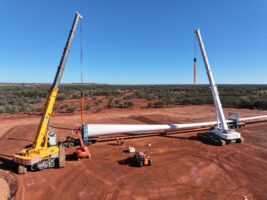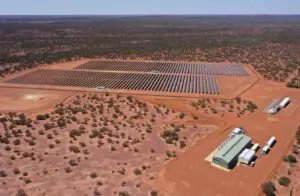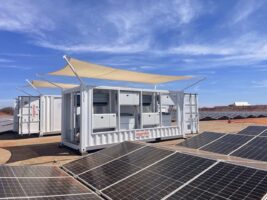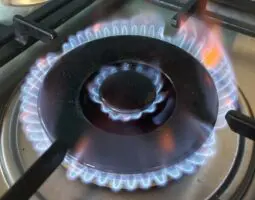Danish clean energy giants Ørsted and Vestas have announced an “industry-first” partnership to deliver “net-zero wind farms” with turbine towers made from low-carbon steel and turbine blades made from recycled materials.
Ørsted, the world’s biggest developer of offshore wind farms and Vestas, one of the world’s biggest wind turbine manufacturer, say they will use low-carbon steel wind turbine towers and blades made from recycled materials in all future joint offshore wind projects.
The two companies said wind produces energy with a 99 per cent lower carbon footprint than coal, but it is also critical to limit the carbon that the manufacturing of materials and components used in wind farms.
The partnership will see the two companies procure and install a minimum of 25% low-carbon steel towers in joint projects, while also scaling circular blade recycling technology and procuring blades made from recycled materials.
“There’s no playing defence when it comes to climate change,” Mads Nipper, group president and CEO of Ørsted, said in a statement.
“That’s why we at Ørsted are very proud to partner with Vestas to integrate and scale cutting-edge decarbonisation and circularity solutions to meet future customer demands for net-zero wind farms.”
Nipper said the partnership will send a strong demand signal to the steel industry to further accelerate the scaling of cost-competitive decarbonised steel for offshore wind.
He said that by utilising scrap steel manufactured with on-site renewable electricity, carbon emissions from heavy steel plates used in towers can be reduced by up to 70 per cent.
Vestas says it and other partners have pioneered the first solution to break down composite materials in both existing and future epoxy-based blades and use the recovered epoxy resin for new blades.
This allows blades to be recycled at their end-of-life. Vestas is currently scaling up the circular recycling value chain together with its partners Olin and Stena Recycling.
“The energy transition requires unprecedented scale and pace, and we need strong partnerships between leading companies and industries to succeed,” Henrik Andersen, CEO of Vestas, said in the statement.










